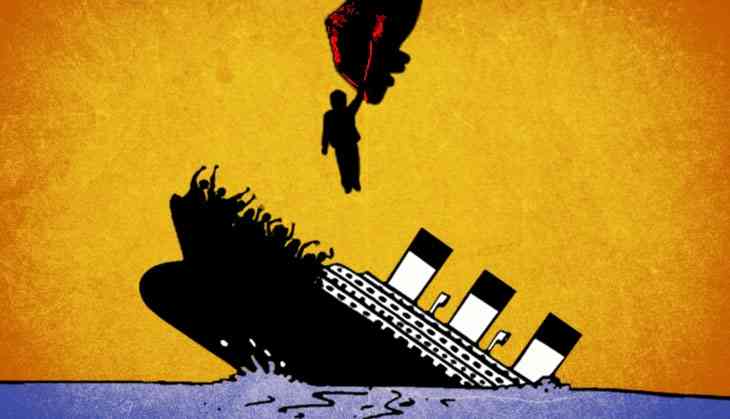Jaypee Infratech Insolvency: Indian bankruptcy law serves only defaulting cos

When Supreme Court stayed the insolvency proceedings against real estate developer Jaypee infratech on Monday, 4 September at National Company Law Tribunal (NCLT), Allahabad, it recognised a glaring loophole in the newly enacted bankruptcy law in the country.
While the insolvency and bankruptcy law recognises the banks as secured loan providers, who have the first right over liquidated assets of a company, there is no provision for salvaging the interests of home buyers who invest their life’s savings to purchase homes.
The Insolvency and Bankruptcy Code, 2016, categorise home buyers as unsecured creditors. What more? Expert columns in newspapers as well as bank's officials advise home buyers to dare not stop paying their equated monthly instalments (EMI): in case the company is revived under a new management, those who stop paying EMIs would not be eligible for possession of their homes.
"The bankruptcy code had not contemplated a situation, like in the case of the real estate sector which has a large number of customers who were yet to get the flats they had paid for. The Insolvency and Bankruptcy Board of India tried to correct it by issuing Form F to customers, that allows the latter to file their claim as creditors in case of liquidation of the company," said Shinoj Koshy, Partner at Luthra & Luthra Law Offices.
Koshy further adds that “The court should have allowed the Insolvency procedure to come up with a plan and waited till the insolvency resolution professional (IRP) provided the final resolution. If the insolvency professionals had failed to safeguard the interests of the buyers, the courts could have intervened. But by stalling the insolvency, the court has given the company back in the hands of the promoters."
But buyers were not happy with the procedure of issuing Form F. nor did they trust the insolvency law. According to Indrish Gupta, a founder member of NEFOWA, “ Form F kept our claims at 5th position. This meant that four other parties, including the banks, contractor and even the state authority would have got their dues cleared before us. There would have been nothing left for us. We had asked the government to give buyers the first right to get claims in the money generated through liquidation from the company's assets. But the government did not agree to it”.
Damned if you do, damned if you don't!
Even as the Supreme Court has given a stay on the insolvency of the company, it is surprising that the government that sat on the Bankruptcy law for years left this loophole that allows promoters of companies to walk away without any personal loss, even as lakhs of buyers are left in the lurch.
Even the Real Estate (Regulation & Development) Act, enacted this year to check fraudulent practices of real estate developers, is silent on the fate of lakhs of buyers who have been duped by real estate companies. These firms used advances from buyers to purchase huge parcels of lands, instead of building their projects.
Now, due to a crash in the real estate market, those land parcels have no value. Money invested in them will remain illiquid for years to come.
Ignore the buyers at the economy's peril
The Government listens to powerful lobbies: pressure groups that can offer unscrupulous money during elections and those who the economy cannot afford to kill.
The home buyers, on the contrary, seems to be standing on the last step of the ladder. Despite much the hue and cry in the past seven-ten years no government has paid heed to their demands.
Can the govt afford to ignore the buyers?
Most home loans are taken for 20 years. Even if a majority of buyers have paid EMIs for a decade, they are unlikely to continue paying for the rest of their term without getting possession of their homes.
In case they decide to stop paying EMIs, it will be the banks who would be hit the most. After all, they made the upfront payment to the developer to complete the project years ago.
The buyer, who usually makes an upfront payment of about 10% of the total cost.
The banks who might be able to recover a part of their loans by selling the developer's land parcel – against the loan given to the latter – would not be able to recover a single rupee from the buyer.
The collateral in case of a home buyer is always his under-construction-home.
Should the buyer's dream of owning a home gets shattered, Mr banker will also lose his sleep over the rise in non-performing assets, which have already crossed Rs 8 lakh crore in the banking system.
Can an already fragile banking system weather another shock wave of NPAs from the real estate sector?
Finance Minister Arun Jaitley expressed sympathy with the buyers of Jaypee Infratech projects last month. If his government fails to recognise the mounting problem for more than two lakh buyers of different realty projects in the Noida region, very soon, the law of economics will force him to empathize with them.
First published: 6 September 2017, 20:18 IST

